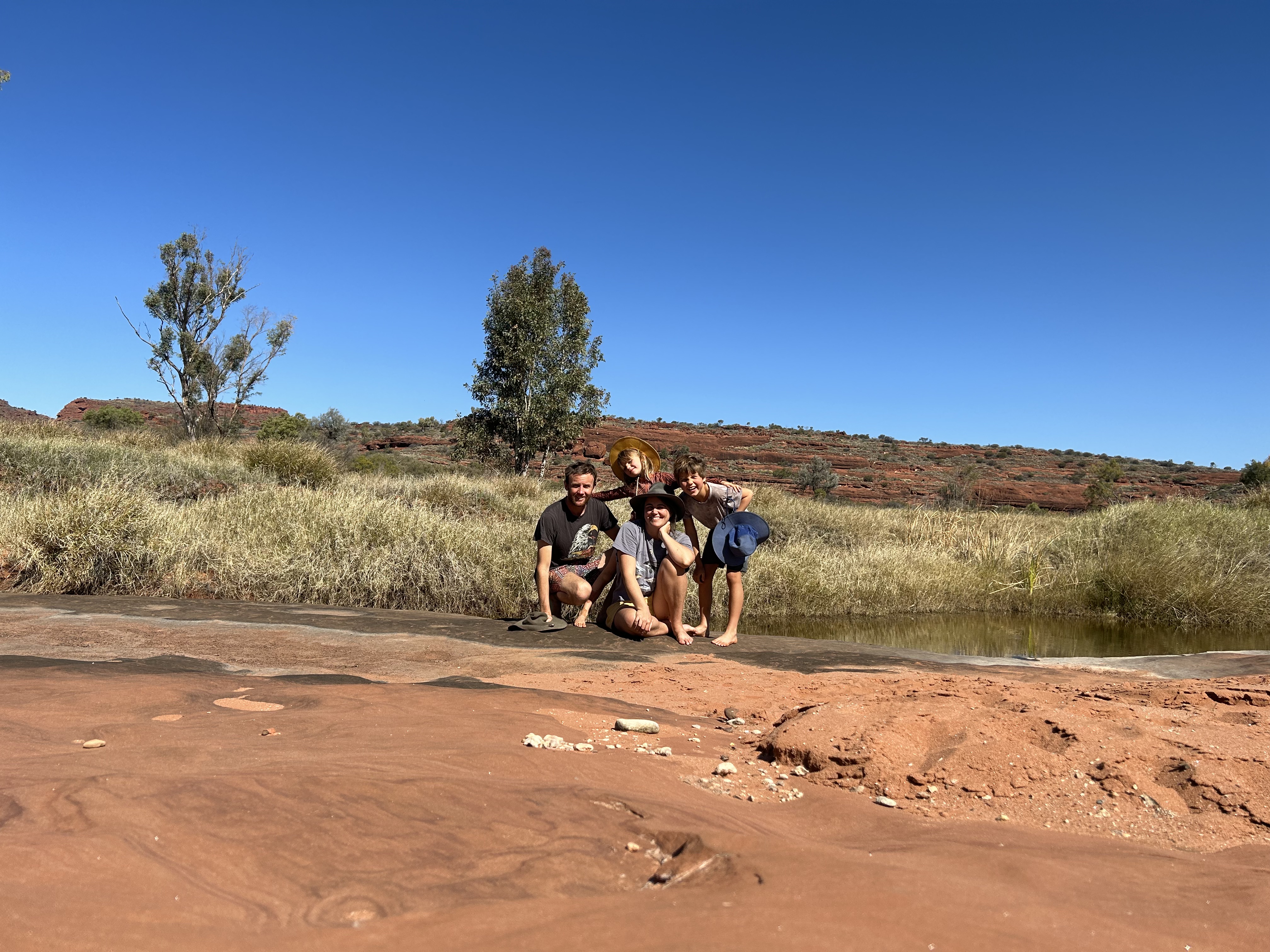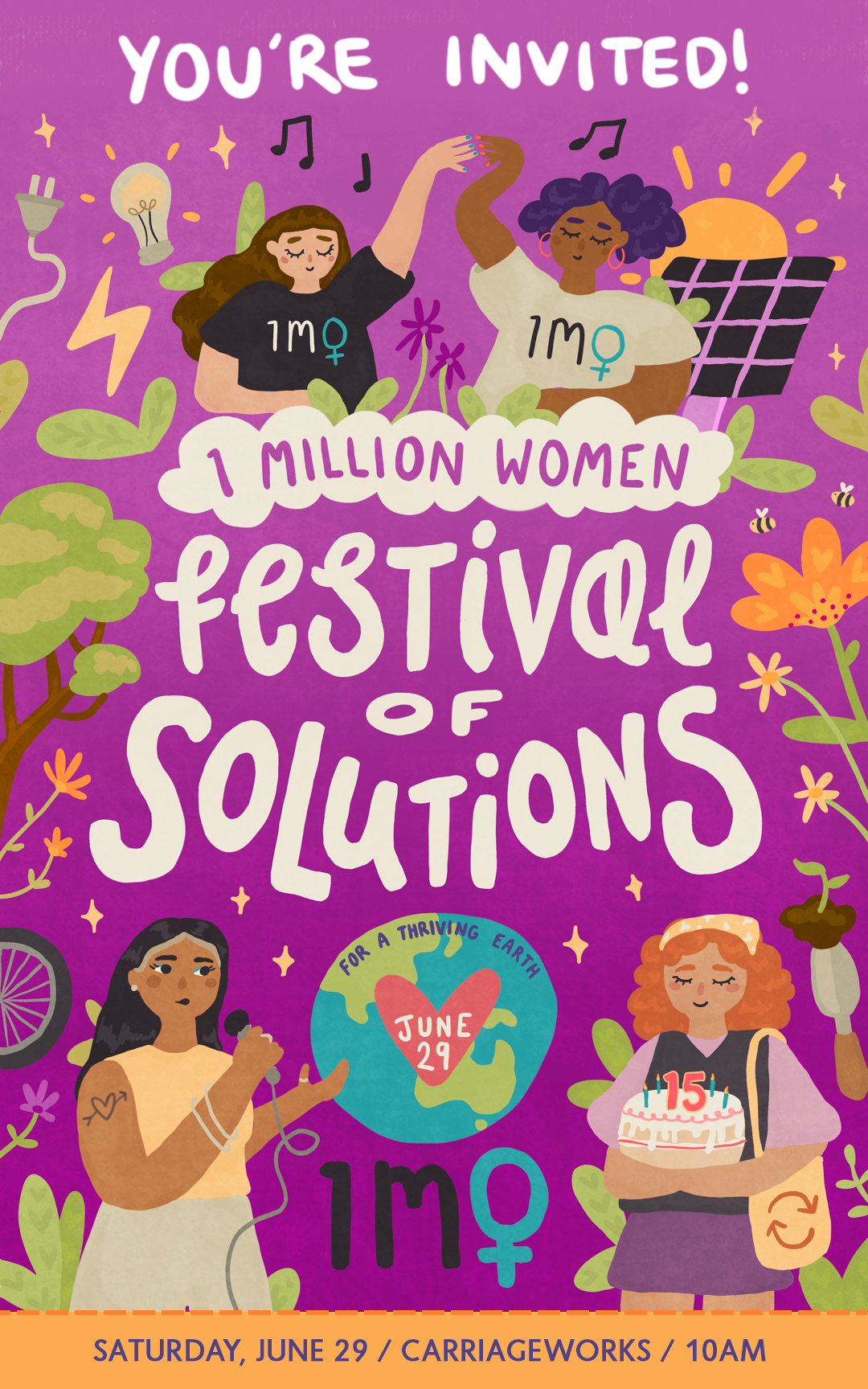I founded This is Electric in 2023 with my partner Phil because we wanted to do something to tackle climate change. This is Electric is an electrical company working for climate action in lutruwita / Tasmania. We exist to support homes, businesses and communities transition to clean energy and get off gas and fossil fuels.
According to Rewiring Australia, around 70% of Australia's domestic emissions come from the decisions we make at the local level - how we travel around, how we cook and how we heat our water and home.
By making some simple changes in our homes and businesses we can help to reduce carbon emissions and save ourselves thousands of dollars.
This is Electric provides a range of electrical services to support the clean energy transition including charging for electric cars, energy efficiency and replacing gas appliances with efficient electric alternatives. As a social enterprise, our profits go towards running clean energy education programs and supporting community energy projects.
Our vision is for every home, business and community to be powered by safe, clean and affordable energy. We want the transition to renewable energy to not only be rapid, but fair and equitable, with benefits shared locally in our communities.
How did this start?
Inspiration for the social enterprise came from the breathing space and adventure of a family holiday in remote Australia in 2023.
In the middle of a cold Tassie winter, we packed up our not-so-trusty van, two young kids and a four person tent, and left our home in nipaluna / Hobart.

After a rough ride on the Spirit of Tasmania (through 8 meter swells 😱), we traveled through the Flinders Ranges in SA and made it all the way to Uluru and Alice Springs. And then we turned left, heading for the coast along 2700 kilometres of remote desert tracks.
The desert tracks west of Alice Springs took us through remote Aboriginal communities of Papunya, Kintore, Kiwirrkurra, Kunawaritji and Punmu and the most spectacular and breathtaking country. Forests of desert oaks whistling in the breeze and fields of honey grevillea and desert flowers, dripping with nectar.
However, the cost of fuel through the desert was exorbitant. And many of the communities we traveled through were reliant on diesel generators to power the local shop, the school, lights and air conditioners to keep families cool in the heat of the day.
Solar power for homes, schools and local business was nowhere to be seen, in the sunniest place ever.
In my work as a welfare rights lawyer in the NT, I've seen first hand some of barriers faced by communities engaging in this space. Many families in these communities need to pre-pay for power which is expensive and unreliable. The benefits of large scale solar and other renewable energy projects operating near these communities are not always being shared or distributed fairly.
Safe, affordable and reliable electricity is vital for our health and wellbeing, including keeping our homes safe and comfortable and keeping food and medicines refrigerated. Often community housing is government owned and tenants don't have a say in how and where they get their power from.
Unfortunately, these inequities in access to clean, affordable and reliable energy will only become more apparent with climate change.
Original Power and other fabulous Aboriginal led organisations are doing something about this. See the Marlinja Community Solar Project as an exciting example. But there is still plenty of work ahead for us all.
What can we do?
Barriers preventing equitable access to renewable energy technology slow down our local and global efforts to reduce emissions. We need to enable a just transition to renewable energy, and ensure that technologies and the benefits reach the people affected by climate change the most.
As a small electrical company, we have big dreams of promoting climate justice in the energy space at a national level.
We also believe in local action and want to support homes and businesses in nipaluna / Hobart to participate actively in, and benefit from, the transition to renewable energy.
I am conscious of how lucky we are. I believe that those of us that can make changes to reduce our emissions and get off gas and fossil fuels, need to be taking action now. This will help to pave the way and make it easier for those facing more barriers.
It is still early days for This is Electric, but we can't wait to see where it goes! Sign up to the This Is Electric little newsletter to keep up to date and hear about our community projects.
Written by Sarah Bury
Sarah Bury is co-founder and director of This is Electric, an electrical company working for climate action in lutruwita / Tasmania.Sarah is a lawyer with over a decade of experience working in human rights and social justice policy and for Aboriginal legal aid. Understanding the links between environmental and social justice issues is something Sarah is really passionate about.
This is Electric is a new venture that Sarah founded with her electrician partner Phil O'Neill.

